Filter by
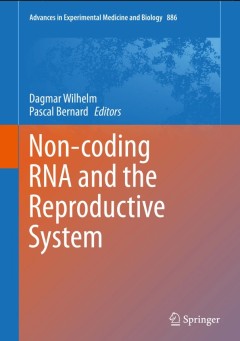
Non-coding RNA and the Reproductive System
This book provides an overview of the role and function of regulatory RNAs that lack protein-coding potential in key reproductive tissues. This includes the role of small interfering RNAs (siRNAs), microRNAs (miRNAs), PIWI-interacting RNAs (piRNAs), small nucleolar RNAs (snoRNAs) and long non-coding RNAs (lncRNAs). Through clear, detailed and comprehensive debate, international leading experts …
- Edition
- 1
- ISBN/ISSN
- 978-94-017-7415-4
- Collation
- VII, 198
- Series Title
- Advances in Experimental Medicine and Biology
- Call Number
- -
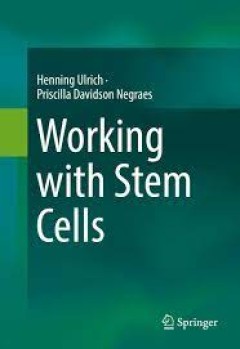
Working with Stem Cells
The content covered encompass not only the theoretic and methodological aspects for culturing human pluripotent stem cells, but also the establishment of induced pluripotent stem cells and their differentiation into specific cellular subtypes. This book has the most updated methods and technologies in an accessible and clear language, presenting protocols developed and optimized by researchers …
- Edition
- -
- ISBN/ISSN
- 978-3-319-30582-0
- Collation
- -
- Series Title
- -
- Call Number
- -
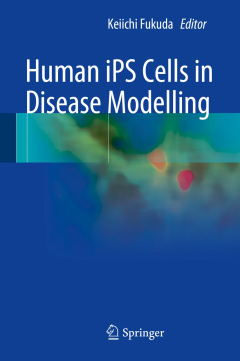
Human iPS Cells in Disease Modelling
Human iPS cells have a great potential to be cell sources for regenerative medicine because of the promise of infinite self-renewal and the capability to differentiate into multiple cell types. This book focuses on another great potential of human iPS cells, which is the establishment of human disease models using patient-specific iPS cells. Human iPS cells can be easily obtained from a patient…
- Edition
- -
- ISBN/ISSN
- 978-4-431-55964-1
- Collation
- VII, 99
- Series Title
- -
- Call Number
- 571.6 HUM
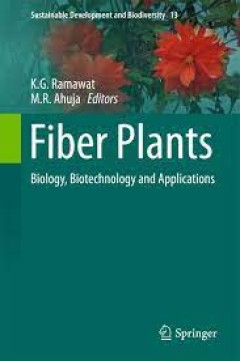
Fiber Plants Biology, Biotechnology and Applications
This book assesses the potential effects of biotechnological approaches, particularly genetic modification, on the present state of fiber crop cultivation and sustainable production. Leading international researchers discuss and explain how biotechnology can affect and solve problems in connection with fiber crops. The topics covered include biology, biotechnology, genomics and applications of …
- Edition
- -
- ISBN/ISSN
- 978-3-319-44570-0
- Collation
- XI, 258
- Series Title
- -
- Call Number
- -

Fetal Stem Cells in Regenerative Medicine Principles and Translational Strat…
This book explores the regenerative properties of fetal stem cells, from feto-maternal cell traffic through perinatal stem cells, with a discussion of key topics including stem cell banking, drug screening, in utero stem cell transplantation and ethical considerations. The expertly authored chapters also delve into embryonic, amniotic membrane, and umbilical cord blood stem cells; fetal develop…
- Edition
- -
- ISBN/ISSN
- 978-1-4939-3483-6
- Collation
- XIX, 453
- Series Title
- -
- Call Number
- -
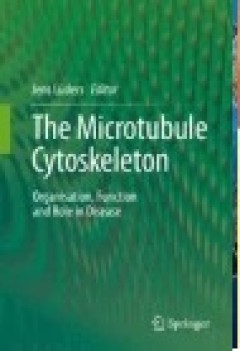
The Microtubule Cytoskeleton
This book provides an overview on the organization and function of the microtubule cytoskeleton, which is essential to many cellular processes and profoundly linked to a range of human diseases. Covering basic concepts as well as molecular details, the book discusses how microtubules are nucleated and organized into ordered arrays, at different cell cycle stages and in distinct cell types. In a…
- Edition
- -
- ISBN/ISSN
- 978-3-7091-1901-3
- Collation
- VII, 189
- Series Title
- -
- Call Number
- -
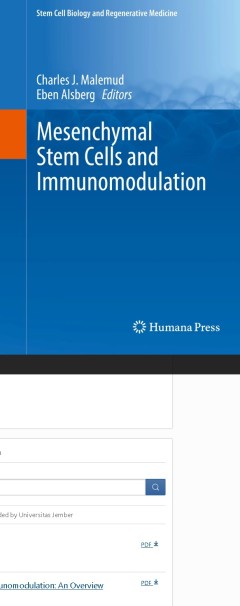
Mesenchymal Stem Cells and Immunomodulation
This essential volume explores mesenchymal stem cells (MSCs) and their potential to suppress immune-mediated inflammation. The chapters examine applications in autoimmune diseases such as lupus, rheumatoid arthritis and multiple sclerosis; blood cancers such as leukemia and lymphoma; and reproductive complications, specifically pre-term labor and use of MSCs in vitro and in animal models to dis…
- Edition
- 1
- ISBN/ISSN
- 978-3-319-46731-3
- Collation
- XI, 85
- Series Title
- Stem Cell Biology and Regenerative Medicine
- Call Number
- -
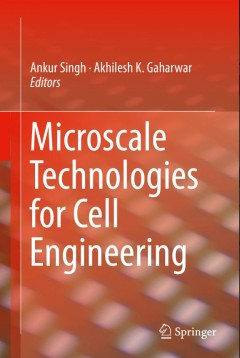
Microscale Technologies for Cell Engineering
This book offers readers cutting-edge research at the interface of polymer science and engineering, biomedical engineering, materials science, and biology. State-of-the-art developments in microscale technologies for cell engineering applications are covered, including technologies relevant to both pluripotent and adult stem cells, the immune system, and somatic cells of the animal and human or…
- Edition
- 1
- ISBN/ISSN
- 978-3-319-20725-4
- Collation
- VIII, 330
- Series Title
- -
- Call Number
- -
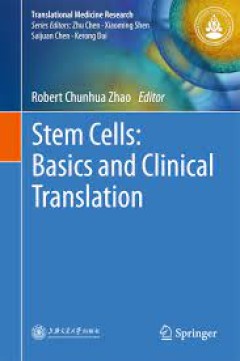
Stem Cells: Basics and Clinical Translation
This book provides a comprehensive review of the properties of various stem cell types, the mechanisms of their behaviors and their potential clinical application. Stem cells have a great capacity of self-renewal and differentiation. They represent new paradigms for disease treatment in the field of regenerative medicine since the day they were discovered. As stem cell research is complicated a…
- Edition
- 1
- ISBN/ISSN
- 978-94-017-7273-0
- Collation
- -
- Series Title
- 5 b/w illustrations, 34 illustrations in colour
- Call Number
- XIII, 510
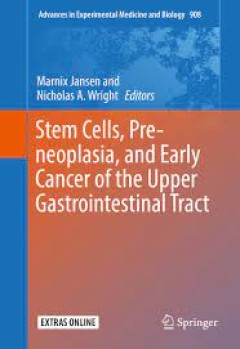
Stem Cells, Pre-neoplasia, and Early Cancer of the Upper Gastrointestinal Tract
This book is a comprehensive understanding of the evolution of pre-malignant disease, emphasizing common themes in the field, including stem cell biology and histologic modes of cancer progression between the distal esophagus and stomach. Its sixteen chapters discuss metaplastic tissue change in the upper GI, clonalexpansion of early neoplasia, stem cell dynamics in experimental models, pathol…
- Edition
- -
- ISBN/ISSN
- 978-3319413860
- Collation
- -
- Series Title
- -
- Call Number
- -
 Computer Science, Information & General Works
Computer Science, Information & General Works  Philosophy & Psychology
Philosophy & Psychology  Religion
Religion  Social Sciences
Social Sciences  Language
Language  Pure Science
Pure Science  Applied Sciences
Applied Sciences  Art & Recreation
Art & Recreation  Literature
Literature  History & Geography
History & Geography